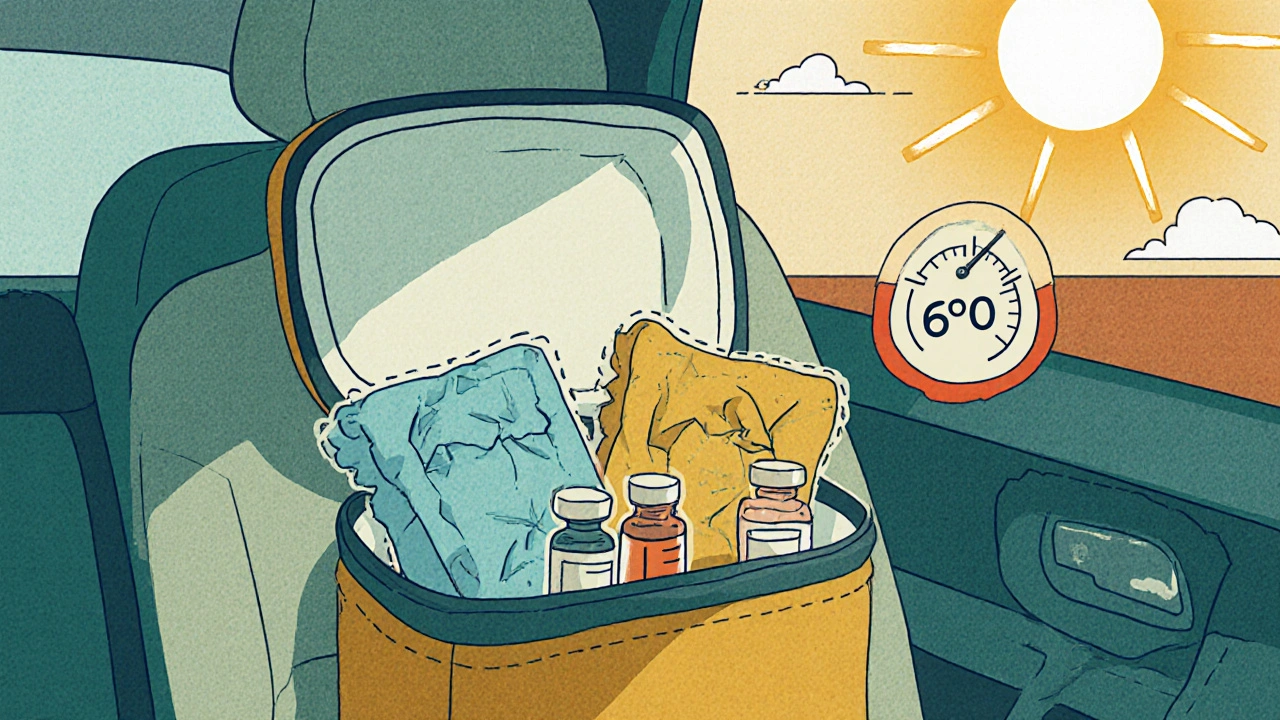Temperature-Sensitive Drugs: What You Need to Know About Storage, Stability, and Safety
When you pick up a prescription, you might not think about what happens to it after it leaves the pharmacy—until it sits in a hot car, gets left on the counter, or ends up in the freezer. Temperature-sensitive drugs, medications that lose effectiveness or become unsafe when exposed to extreme heat, cold, or humidity. Also known as thermolabile drugs, they include everything from insulin and certain antibiotics to biologics and even some migraine pills. These aren’t rare exceptions—they’re common, and getting them wrong can mean your treatment doesn’t work—or worse, makes you sick.
Why does this matter? Because drug degradation, the chemical breakdown of a medication due to environmental stress isn’t always visible. Your pills might look fine, your liquid might still be clear, but if it’s been too warm for too long, the active ingredient could be half gone. Studies show insulin can lose up to 30% of its potency after just a few hours at 30°C (86°F). Same goes for vaccines, antibiotics like azathioprine, and even some thyroid meds. The body doesn’t care if you meant well—it just knows the dose it’s getting isn’t what the doctor ordered.
Refrigerated medications, drugs that must be kept between 2°C and 8°C (36°F and 46°F) to stay stable are especially tricky. People assume if it says "store in the fridge," it’s fine anywhere in there. But freezing can destroy biologics and protein-based drugs. And if you’re traveling? A cooler with ice packs isn’t enough if the ice melts. Even your bathroom cabinet—hot and steamy—is a no-go for many drugs. The right storage isn’t about convenience; it’s about safety.
And it’s not just about keeping meds cold. Some drugs are ruined by moisture. Others break down under direct sunlight. That bottle of eye drops you leave on the windowsill? Could be useless by next week. Even your pill organizer, if it’s plastic and sitting in a hot car, can trap heat and speed up degradation. The label says "store at room temperature"? That usually means 20°C to 25°C (68°F to 77°F)—not your garage in July.
You don’t need a lab to protect your meds. Just pay attention. Keep insulin in the fridge until you use it, then carry it in a small insulated bag. Don’t leave antibiotics in your purse after a day at the beach. Check expiration dates—even if they’re not expired, heat can shorten their life. And if you’re ever unsure? Call your pharmacist. They’ve seen what happens when people guess wrong.
Below, you’ll find real-world guides on how specific drugs behave under stress—from statins and metformin to insulin systems and antifungal creams. Some posts explain how temperature affects side effects. Others show you how to spot when a drug has gone bad. All of them are written for people who need to take their meds seriously, not just follow the instructions on the bottle.

- Nov 19, 2025
- Posted by Cillian Osterfield
How to Transport Medications in Hot and Cold Weather: A Practical Guide for Patients and Caregivers
Learn how to safely transport temperature-sensitive medications like insulin and vaccines in hot or cold weather. Avoid degradation, maintain potency, and protect your health with practical tips for travel, storage, and emergency situations.
Categories
- Health and Wellness (72)
- Medications (71)
- Health and Medicine (28)
- Pharmacy Services (12)
- Mental Health (9)
- Health and Career (2)
- Medical Research (2)
- Business and Finance (2)
- Health Information (2)
Latest Posts
©2026 heydoctor.su. All rights reserved





